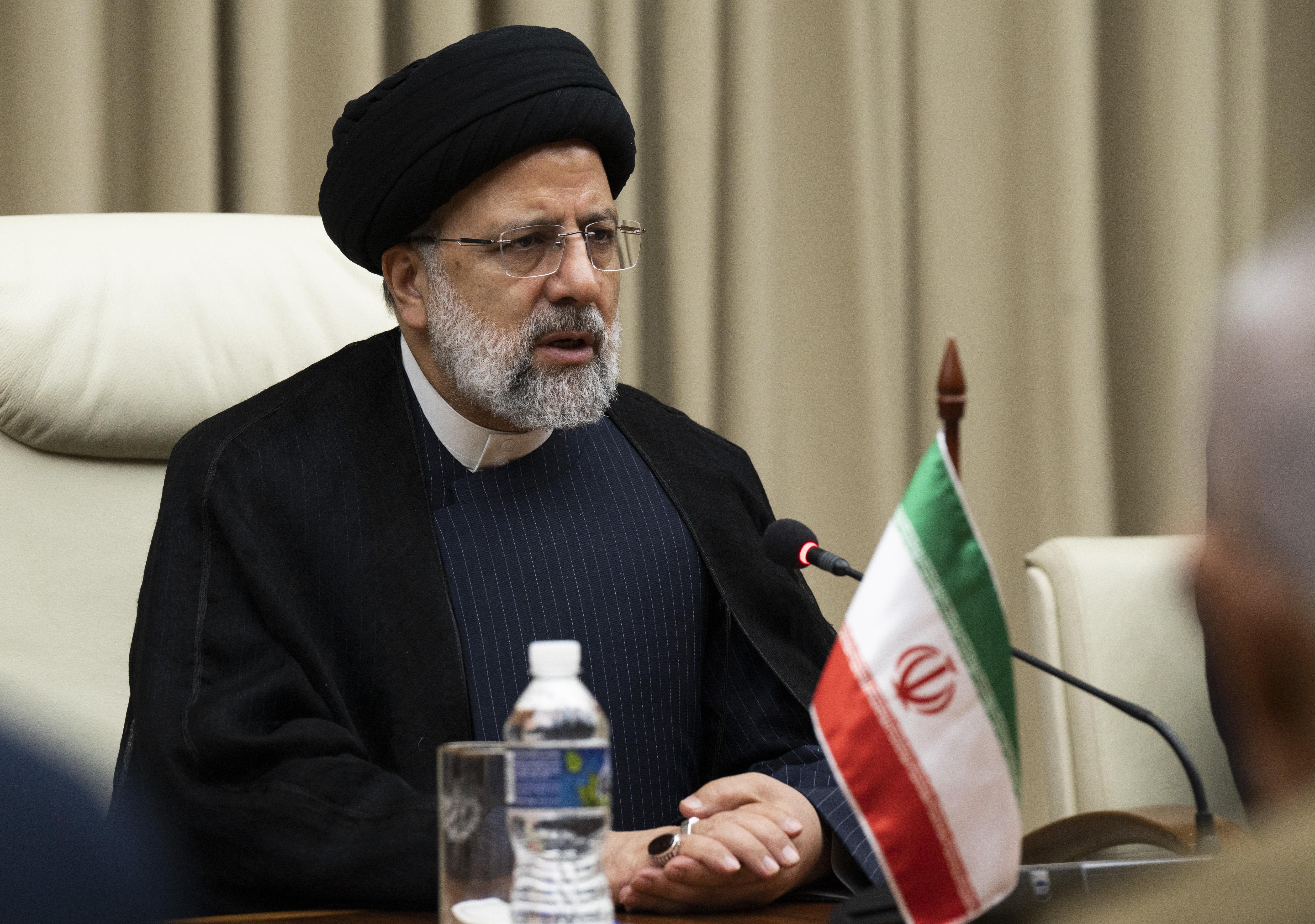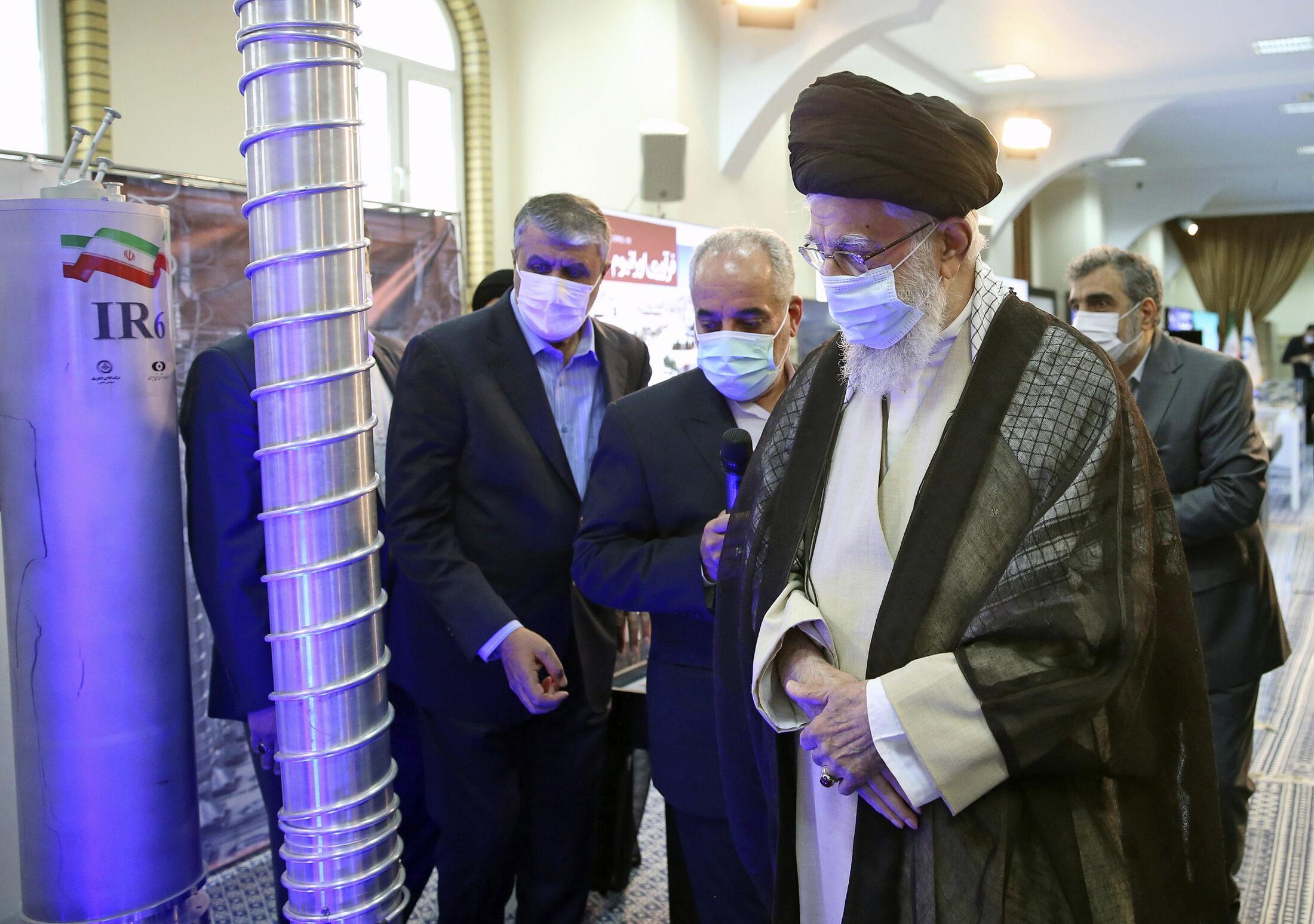 Iran's President Ebrahim Raisi sits across the table from Cuban President Miguel Diaz Canel (not in image), alongside their their delegations at Revolution Palace in Havana, Cuba, June 15, 2023. (PHOTO /AP)
Iran's President Ebrahim Raisi sits across the table from Cuban President Miguel Diaz Canel (not in image), alongside their their delegations at Revolution Palace in Havana, Cuba, June 15, 2023. (PHOTO /AP)
TEHRAN - Iran's President Ebrahim Raisi stated on Tuesday that while the country will continue discussing the revival of the 2015 nuclear deal with "dignity," it will also work to counteract the US sanctions, as there is a lack of trust in "the other side."
He made these comments during the closing ceremony of the 21st National Media Festival of Iran, which coincided with National Journalist's Day on Aug 8, according to a statement from the Iranian president's office.
"We have never violated the (nuclear) agreement and never left the negotiating table. Today, although we have the upper hand in the negotiations to lift the sanctions and solid demands, we will never trust the other side as we have, on numerous occasions, seen them breaking their promises," Raisi said.
 In this photo released by the office of the Iranian supreme leader, Supreme Leader Ayatollah Ali Khamenei (front, right) visits an exhibition of the country's nuclear achievements, at his office compound in Tehran, Iran, June 11, 2023. (PHOTO / AP)
In this photo released by the office of the Iranian supreme leader, Supreme Leader Ayatollah Ali Khamenei (front, right) visits an exhibition of the country's nuclear achievements, at his office compound in Tehran, Iran, June 11, 2023. (PHOTO / AP)
On the same day, Iran's top nuclear official said that the country is prepared to sell products derived from heavy water.
The United States, however, pulled out of the nuclear deal in May 2018 and reimposed its unilateral sanctions on Tehran, prompting the latter to reduce some of its nuclear commitments under the deal
In an interview with the Islamic Republic of Iran News Network, Mohammad Eslami, the head of Iran's Atomic Energy Organization, talked about recent progress in nuclear technology.
"Heavy water derivatives are among the most up-to-date achievements made only by two or three developed countries and we are among them. We are ready to export the byproducts to other countries," the nuclear official said.
Heavy water is a compound that is made up of oxygen and deuterium, a heavier isotope of hydrogen. It is used as a moderator in the nuclear reactor to slow down the neutrons. It can also be used to make various derivatives, including deuterated drugs that can help cure cancers.
ALSO READ: Over 3,000 US troops arrive in Mideast amid tensions with Iran
Iran signed the nuclear deal, known as the Joint Comprehensive Plan of Action (JCPOA), with world powers in July 2015, agreeing to put some curbs on its nuclear program in return for the removal of the sanctions on the country. The United States, however, pulled out of the deal in May 2018 and reimposed its unilateral sanctions on Tehran, prompting the latter to reduce some of its nuclear commitments under the deal.
The talks on the JCPOA's revival began in April 2021 in Vienna, Austria. No breakthrough has been achieved after the latest round of talks in August 2022.


